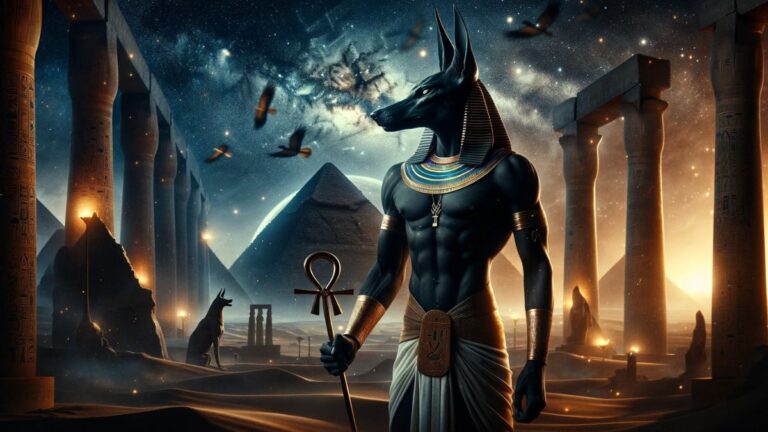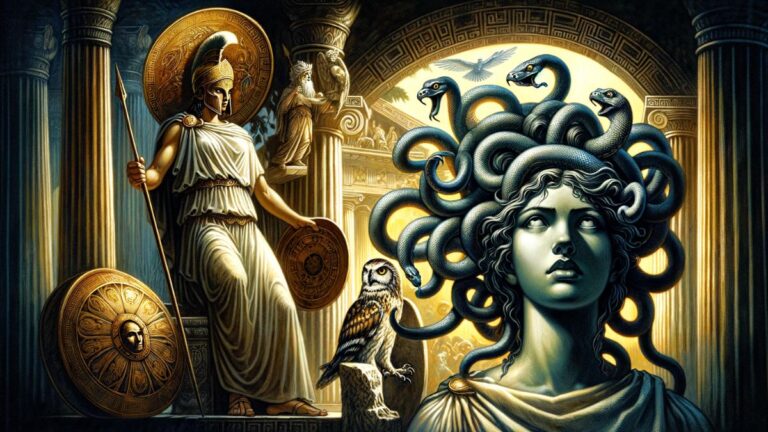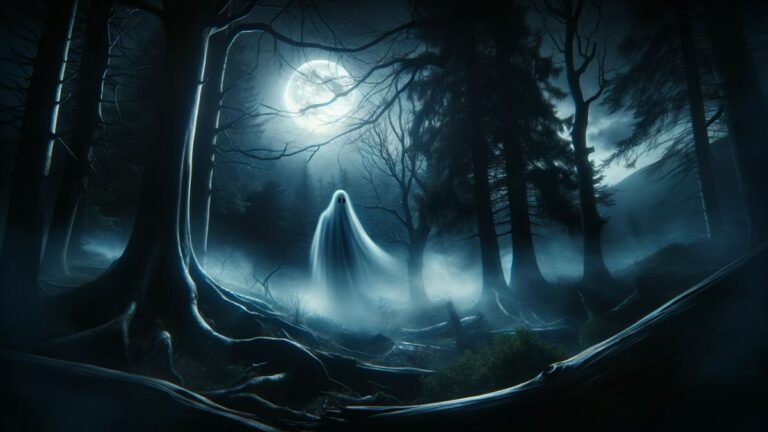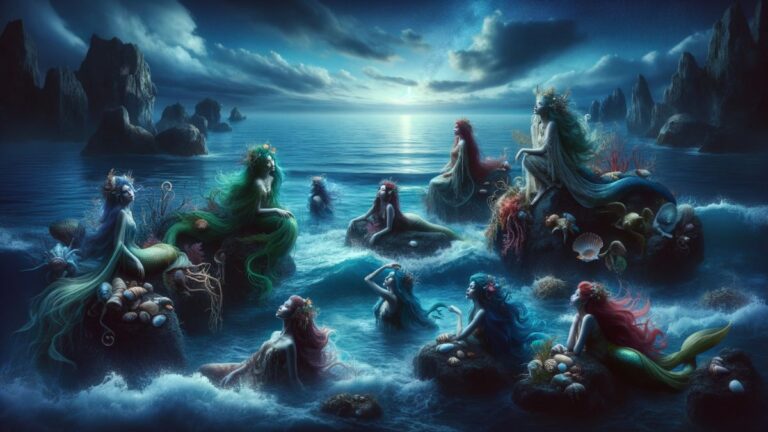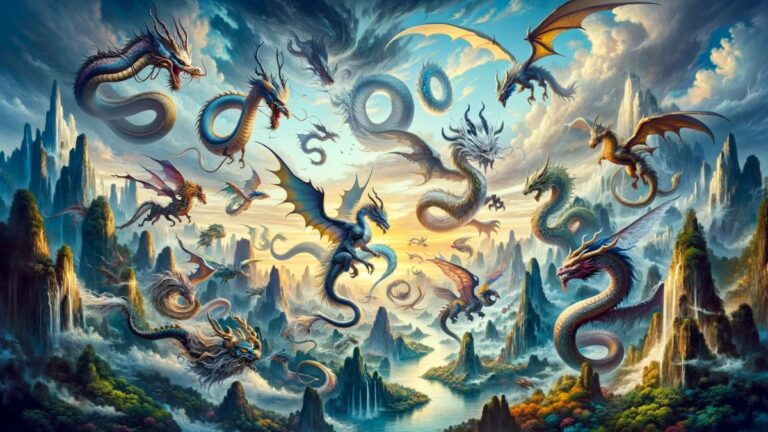Mount Olympus and the Greek Gods: A Panoramic Overview

Mount Olympus, a place of mystery and legend, stands as a powerful symbol in Greek mythology. It’s not just a mountain; it’s the home of the Greek gods, a central location in countless stories and myths. This article will take you on a journey to explore the intriguing world of these gods and the myths that surround them. We’ll delve into their stories, understand their roles, and see how they have shaped human history and culture. Join me as we uncover the secrets of Mount Olympus and the fascinating tales of the Greek gods.
The Majesty of Mount Olympus: Exploring Its Significance
Mount Olympus isn’t just a geographical landmark; it’s a symbol of divine power and mystery in Greek mythology. Standing tall at nearly 3,000 meters, it was believed to be the home of the gods, a place where the earth touched the heavens. This mountain was more than a home; it was a fortress, a meeting place for the deities, and the site of many significant mythological events. Its towering presence is a testament to the gods’ supremacy, commanding respect and awe from mortals.
The significance of Mount Olympus extends beyond its physicality. It represents the center of the universe in Greek mythology, a place where decisions affecting both gods and humans were made. The mountain was seen as an eternal paradise, free from the troubles of the mortal world. Its unscalable peaks and hidden valleys filled with wonders and mysteries, making it a powerful symbol of the unknown and unattainable in human life.
Zeus and His Mighty Reign: The King of Gods
Zeus, the ruler of Mount Olympus and the god of the sky and thunder, is perhaps the most well-known figure in Greek mythology. His power was unmatched, controlling the weather and enforcing justice among gods and humans. Zeus was not just a powerful deity; he was the protector of order and justice, often intervening in the affairs of gods and mortals to maintain balance.
Despite his role as a just ruler, Zeus was also known for his romantic escapades, having numerous affairs with goddesses and mortal women. These stories highlight his human-like qualities, such as desire and wrath, making him a relatable yet awe-inspiring figure. His reign over Mount Olympus and the gods symbolized the ultimate authority and the complexities of power and morality.
Hera’s Intrigues: Goddess of Marriage and Family
Hera, the wife of Zeus and queen of the gods, was revered as the goddess of marriage and family. Her role in mythology is often defined by her loyalty to marriage and her efforts to maintain the sanctity of this institution. Hera’s dedication to marriage was not just about upholding tradition; it was about protecting the social order and ensuring stability in the divine and mortal worlds.
However, Hera’s story is also marked by her jealousy and vengeance, especially towards Zeus’s numerous lovers and illegitimate offspring. These tales reveal the complexities of her character, portraying her as a goddess with deep emotions and fierce protectiveness over her family and status. Hera’s influence extended beyond Olympus, as she was often involved in the affairs of heroes and mortals, shaping their destinies and relationships.
Poseidon’s Watery Realm: God of the Sea
Poseidon, the brother of Zeus, ruled over the vast and mysterious oceans. As the god of the sea, earthquakes, and horses, he wielded the powerful trident, with which he could stir the waters and shake the earth. Poseidon’s domain was as temperamental and unpredictable as the sea itself, reflecting his volatile nature.
His influence was not limited to the sea; he was also a key figure in the development of many Greek cities, most notably Athens. Poseidon’s competition with Athena for the patronage of the city demonstrates the intersection of divine and mortal worlds. His character is a mix of benevolence and wrath, often using his powers to aid sailors but also unleashing storms as a form of punishment.
Athena’s Wisdom: Goddess of Wisdom and War
Athena, the goddess of wisdom, war, and crafts, was born from the head of Zeus, fully grown and armored. She was revered as a strategist and warrior, often helping heroes like Odysseus with her guidance and intelligence. Athena was not just a goddess of physical battles; she symbolized the pursuit of knowledge and the arts.
Athena’s role as a patron of cities, most notably Athens, was central to her identity. She gifted the olive tree to the Athenians, a symbol of peace and prosperity. Her character contrasts the typical portrayal of war deities; she was rational, calm, and just, advocating for wisdom over brute force. Athena’s influence was profound, shaping Greek culture and thought, making her a symbol of reason and enlightenment.
Apollo and Artemis: The Divine Twins of Light and Hunt
Apollo and Artemis, the twin children of Zeus and Leto, represent the duality of nature – light and darkness, civilization and wilderness. Apollo, the god of the sun, music, and prophecy, was a beacon of beauty, art, and rationality. His oracle at Delphi was a major site for prophecy, where he communicated through the Pythia. Apollo symbolized the harmony of opposites, merging the intellectual with the physical.
Artemis, the goddess of the hunt, wilderness, and childbirth, was a protector of nature and young women. Unlike her brother, Artemis was fierce and independent, often depicted as a huntress with her bow and arrows. She represents the wild and untamed aspects of nature, as well as the nurturing force behind fertility and childbirth. Together, Apollo and Artemis embody the balance of nature and the complexities of the human condition.
Ares and Aphrodite: Love and War Intertwined
Ares, the god of war, and Aphrodite, the goddess of love, represent the complex relationship between love and conflict. Ares, often depicted as fierce and relentless, embodied the brutal and chaotic nature of war. In contrast, Aphrodite, seen as the epitome of beauty and desire, symbolized the softer, persuasive powers of love and attraction.
Their affair, one of the most famous in Greek mythology, shows the interplay between these two powerful forces. Their relationship was passionate yet tumultuous, reflecting the intertwining of love and war in human experiences. These stories highlight how love can lead to conflict and how war can be influenced by love, demonstrating the multifaceted nature of these emotions and their impact on both gods and mortals.
Hermes: The Messenger’s Role in Mythology
Hermes, the messenger of the gods, was a figure of speed, cunning, and communication. Known for his winged sandals and helmet, he was the bridge between the divine and mortal worlds, delivering messages and executing the will of the gods. Hermes was also the god of commerce, thieves, and travel, embodying the spirit of movement and exchange.
His role went beyond that of a mere messenger; Hermes was a guide for souls to the underworld, a protector of travelers and a patron of orators and poets. His character was playful and clever, often using his wit to outsmart other gods and mortals. Hermes represents the fluidity of boundaries, the connection between different realms, and the importance of communication and cunning in overcoming challenges.
Demeter and Persephone: A Tale of Seasons
Demeter, the goddess of agriculture, and her daughter Persephone’s story, explain the origin of the seasons. Demeter’s despair during Persephone’s abduction by Hades resulted in the withering of crops and the onset of winter. Her joy upon Persephone’s return brought about spring and renewal. This tale symbolizes the cycle of life and death, and the unbreakable bond between mother and daughter.
Their story also reflects ancient Greek beliefs about the afterlife and the regeneration of life. Persephone’s time in the underworld and her return to the earth’s surface represent the mystery of death and rebirth, a central theme in agricultural societies. This myth has had a lasting impact, influencing art, literature, and the understanding of natural phenomena across cultures.
The Lesser Known Deities: Unveiling the Forgotten
While the major gods of Olympus are well-known, there are several lesser-known deities who played significant roles in Greek mythology:
- Hestia: Goddess of the hearth and domesticity.
- Hephaestus: God of fire and metalworking.
- Dionysus: God of wine, festivity, and ecstasy.
- Eros: God of love and attraction.
Each of these deities had a unique domain and influence, contributing to the rich tapestry of Greek mythology. They remind us of the diverse aspects of life and nature revered by the ancient Greeks.
In conclusion, these lesser-known gods add depth and variety to the stories of Mount Olympus, showcasing the breadth of themes and values in Greek mythology.
Mythical Creatures and Heroes: Beyond the Gods
Greek mythology is filled with a myriad of mythical creatures and heroes, each with their own fascinating stories:
- Heracles (Hercules): Known for his strength and his legendary twelve labors.
- Medusa: A Gorgon with snakes for hair, whose gaze turned people to stone.
- Minotaur: A creature with the body of a man and the head of a bull, confined in the Labyrinth.
- Pegasus: A winged horse, born from the blood of Medusa.
These figures represent the extraordinary and the supernatural, capturing the imagination and conveying moral and philosophical lessons.
To conclude, these mythical beings and heroes add another layer to Greek mythology, bringing excitement, adventure, and wisdom to the tales of gods and mortals.
Mount Olympus Today: Its Cultural and Historical Legacy
Mount Olympus remains a symbol of Greek cultural identity and its mythological past. Its towering presence continues to inspire artists, writers, and adventurers, drawing people to explore its peaks and history. The mountain is not just a physical place; it’s a source of inspiration, a reminder of the rich mythological heritage of Greece.
In modern times, Mount Olympus has transcended its mythological roots to become a beacon for hikers, nature enthusiasts, and historians alike. It’s a place where the past and present merge, offering a unique experience to those who walk its paths. The mountain is a testament to the enduring power of mythology in shaping our understanding of the natural world.
Furthermore, Mount Olympus plays a crucial role in promoting Greek tourism and cultural education. It draws visitors from around the world, eager to see the legendary home of the gods and experience the beauty of Greek nature. Through this, Mount Olympus continues to contribute to the local economy and the preservation of Greek cultural heritage.
How can I visit Mount Olympus and what should I expect?
Visiting Mount Olympus is a journey into both nature and mythology. Located in northern Greece, the mountain can be accessed from the town of Litochoro, where hiking trails lead to its peaks. Visitors should expect a challenging but rewarding hike, with the opportunity to explore diverse flora and fauna. The most popular route, E4, takes you through scenic landscapes, offering a chance to connect with the natural beauty and mythological history of this legendary mountain.
Are there any annual events or festivals related to Greek mythology in Greece?
Greece hosts various annual events and festivals celebrating its mythological heritage. One notable festival is the Olympus Festival, held every summer, featuring theatrical performances, concerts, and exhibitions inspired by Greek mythology. Another event is the Athens & Epidaurus Festival, which includes performances of ancient Greek plays in historic theaters, allowing attendees to experience the myths and stories in their original context.
How has Greek mythology influenced modern literature and cinema?
Greek mythology has profoundly influenced modern literature and cinema, providing foundational narratives and themes. In literature, authors like Rick Riordan have popularized these myths through series like “Percy Jackson & the Olympians.” In cinema, films such as “Clash of the Titans” and “Wonder Woman” draw heavily on these myths, adapting ancient stories to modern contexts and audiences, demonstrating the timeless appeal of these tales.
What are some lesser-known myths or stories about Mount Olympus?
Beyond the famous tales, Mount Olympus harbors lesser-known myths. One such story is that of the nine Muses, goddesses of the arts, who resided on the mountain, inspiring creativity and knowledge. Another tale involves the Gigantomachy, a lesser-known but significant battle where the gods fought against giants for control of the universe, a pivotal moment in establishing the supremacy of the Olympian gods.
How do Greek myths compare to myths from other cultures around the world?
Greek myths share similarities with other cultural mythologies in themes such as creation, heroism, and morality. Like Norse or Hindu mythology, Greek myths explain natural phenomena, human emotions, and the origins of the world. However, Greek myths are unique in their detailed pantheon of gods and their human-like qualities, offering insight into ancient Greek values and perspectives.
Can you recommend books or resources for further reading on Greek mythology?
For further reading on Greek mythology, consider “The Greek Myths” by Robert Graves, offering comprehensive retellings of the myths. “Mythology: Timeless Tales of Gods and Heroes” by Edith Hamilton is another classic resource. For a modern interpretation, “Gods and Heroes of Ancient Greece” by Gustav Schwab provides accessible and engaging storytelling.
What impact has Greek mythology had on modern philosophy and psychology?
Greek mythology has significantly influenced modern philosophy and psychology, especially through the works of Carl Jung and Joseph Campbell. Jung’s concept of archetypes drew heavily on mythological figures and themes, while Campbell’s “The Hero with a Thousand Faces” explores the mythological basis of the hero’s journey, a concept widely used in literature and film analysis.
Are there any archaeological sites related to the Greek gods that can be visited?
Several archaeological sites related to the Greek gods can be visited. The most famous is the ancient site of Olympia, the birthplace of the Olympic Games, dedicated to Zeus. The Acropolis in Athens, home to the Parthenon dedicated to Athena, and Delphi, the site of Apollo’s oracle, are also key locations where visitors can connect directly with the physical remnants of ancient Greek religious practices.
How do Greeks today view and relate to these ancient myths and deities?
In modern Greece, ancient myths and deities are viewed as a crucial part of cultural heritage and identity. These stories are taught in schools, celebrated in festivals, and reflected in everyday life through art, language, and customs. While the ancient gods are no longer worshipped, their stories continue to be a source of pride and a window into ancient Greek thought and values.
What are some common misconceptions about Greek gods and Mount Olympus?
Common misconceptions about Greek gods include the idea that they were purely benevolent. In reality, these deities often had flawed, human-like qualities. Regarding Mount Olympus, it’s often believed to be a purely mythical place, whereas it is a real mountain in Greece. Another misconception is that the Greek gods were worshipped only in ancient times, overlooking their enduring cultural significance.
How have interpretations of these myths changed over time?
Interpretations of Greek myths have evolved over time, reflecting changing cultural, social, and philosophical contexts. Originally, these stories were part of a religious belief system. Over centuries, they have been reinterpreted as allegories, moral lessons, and symbols in art and literature. Today, they are often seen as a window into ancient Greek culture and psychology, as well as sources of entertainment and inspiration.
Is there a connection between the constellations and Greek mythology?
There is a strong connection between the constellations and Greek mythology. Many constellations are named after Greek mythological figures or stories. For example, Orion is named after a legendary hunter, and the constellation of Leo is linked to the Nemean Lion, slain by Heracles. These constellations not only reflect the myths but also served as tools for navigation and agricultural planning in ancient times.

